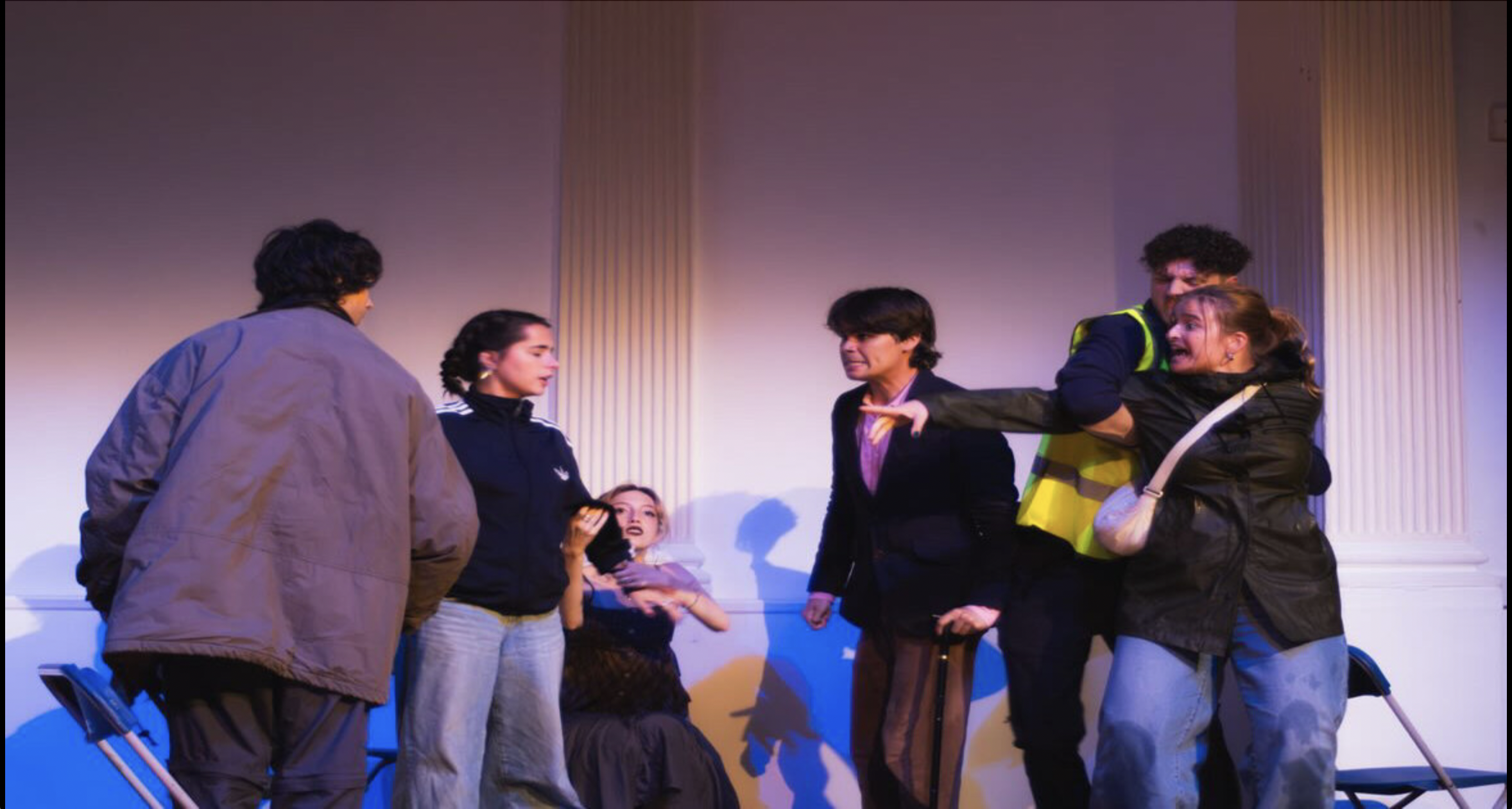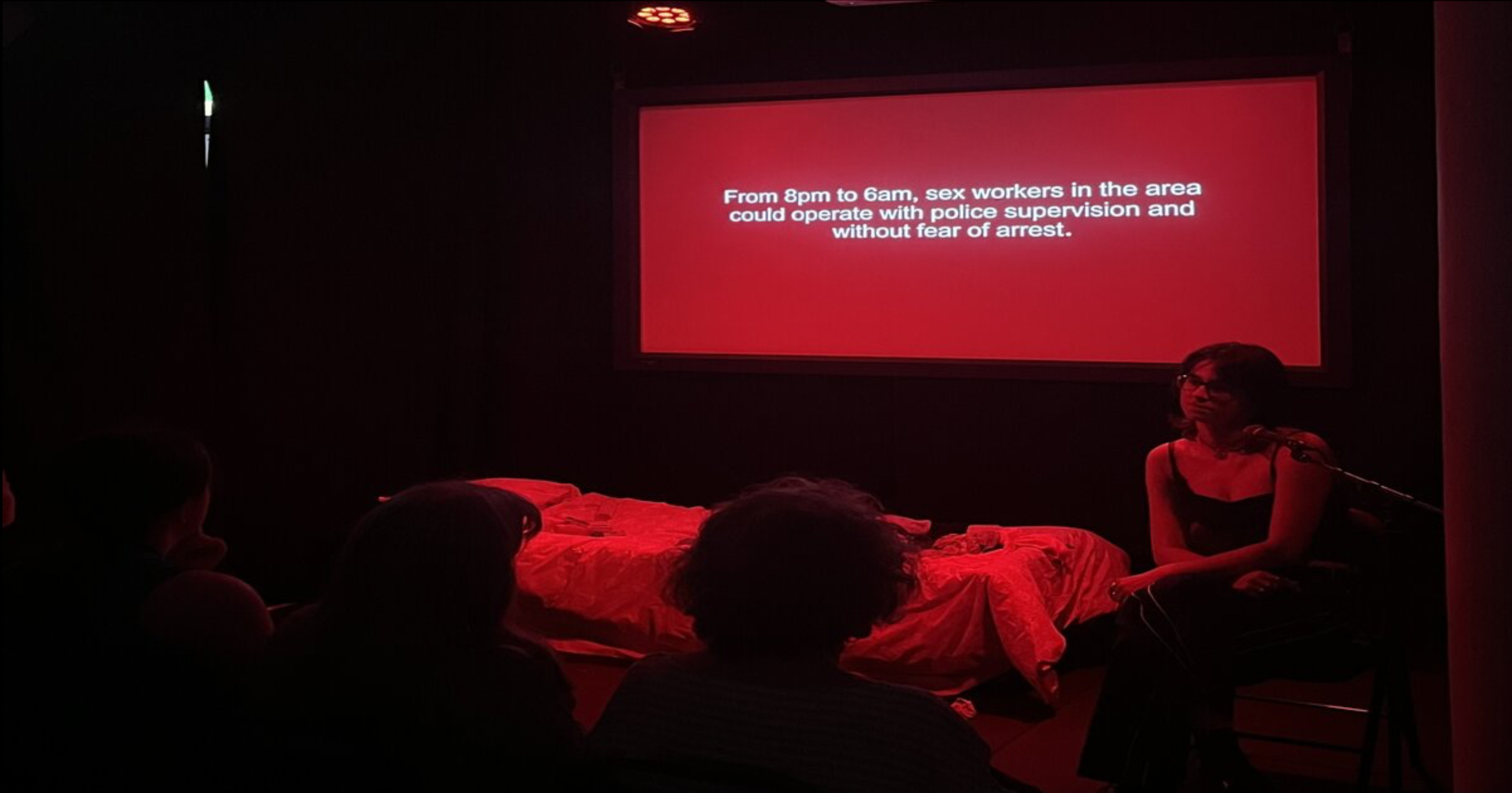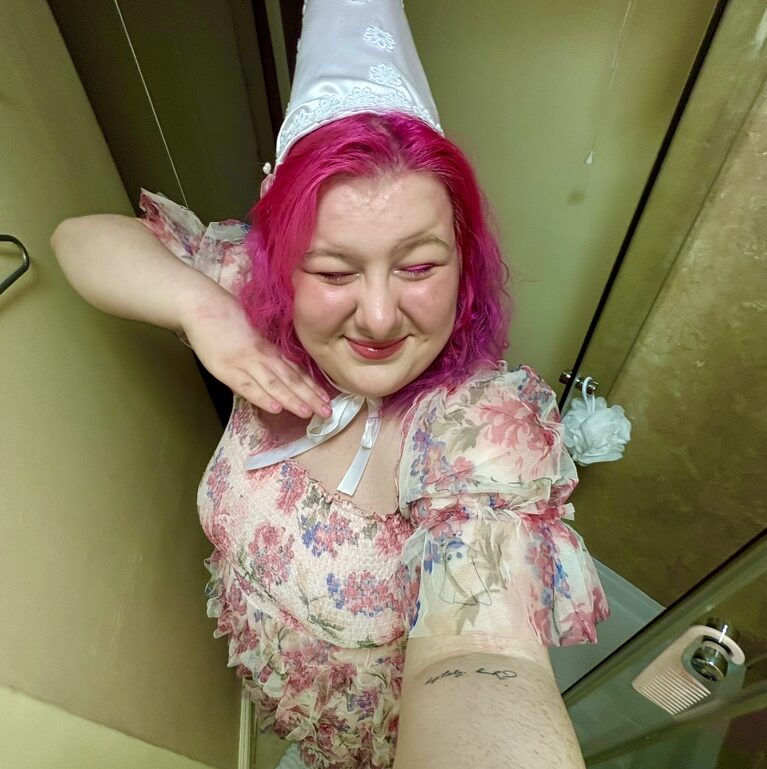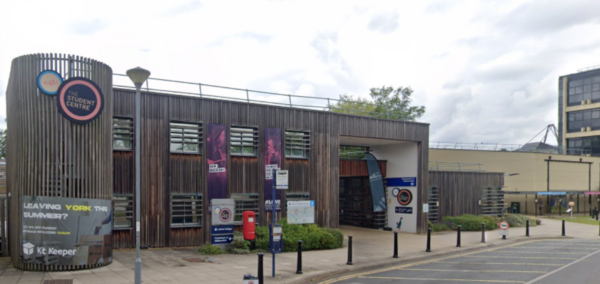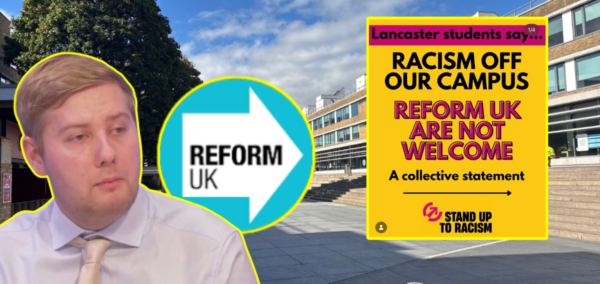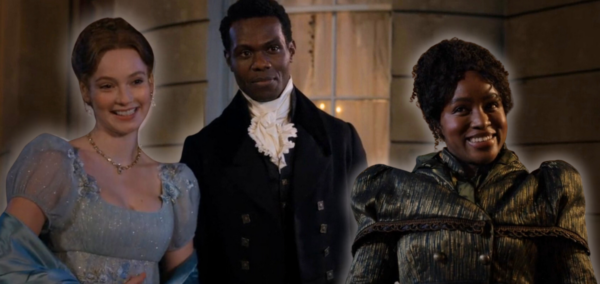
How to Welfare Edinburgh Fringe as a Cambridge student
I talk to two Welfare Officers about their experience working with shows at the Edinburgh Fringe Festival
As August comes to an end so to does the world’s biggest arts festival. For three weeks, over 3,000 shows are put on across 265 venues throughout Edinburgh, drawing countless performers and tourists to the city. Among these, fourteen shows from Cambridge were taken up this year, showcasing the range of talent that makes Cambridge theatre so unique. But it comes as no surprise that, while Edinburgh Fringe is an exciting and rewarding experience, it can also come with a great deal of anxiety, stress and tension.
I asked two Welfare Officers for shows at Fringe, Megan Hart-Jones (Loos Loos) and Ella Thornburn (Cockaigne Drinking Society), about their perspective on how best to deal with these problems, and their advice for those seeking to participate in shows at Edinburgh Fringe, and in theatre more broadly.
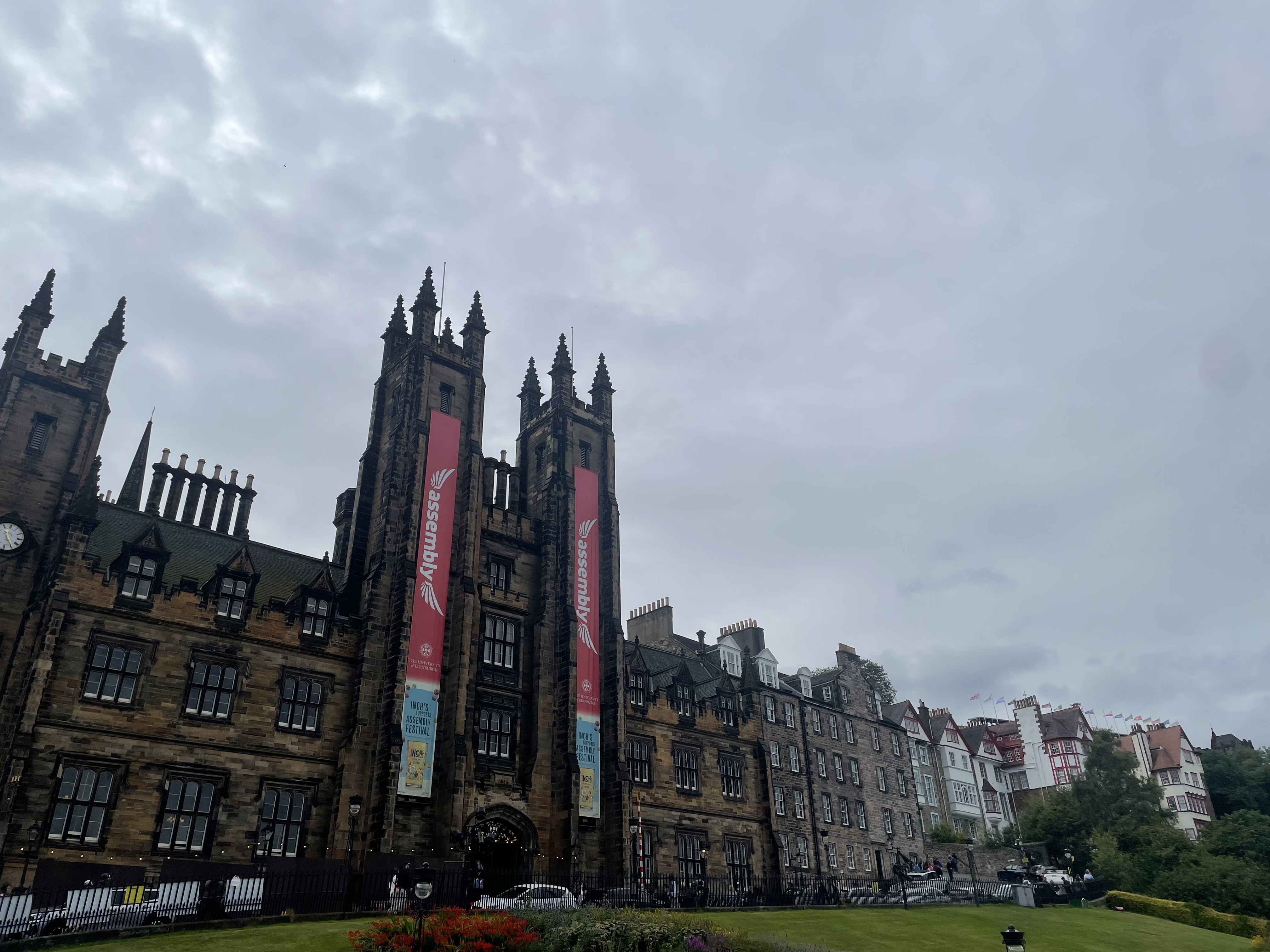
Image credits: Eliza Cane-Honeysett
The role of Welfare Officer can be ambiguous, and the demands made of the individual in this position often varies show-to-show. Sometimes all that’s required is that they provide party rings and hummus chips. But the role of the Welfare Officer seems to increase significantly in importance (not that they’re ever unimportant) during events like Fringe, where cast and prod team relationships can be pushed to the limit.
Most Read
Megan describes their priorities in the role as making sure everyone feels comfortable and that they have someone to talk to. Trust and confidentiality, notes Ella, are also priorities: Anyone involved in the show should feel able to confide in the Welfare Officer as someone separate from the show’s company. Ella writes: “I want to counteract the feeling that you just have to ‘grin and bear it’ to avoid risking causing friction or upsetting the politics of a cast. Welfare Officers have a responsibility to hear everyone out in an unbiased manner and to minimise the challenges in their team’s personal and professional lives.”
While the priorities of the Welfare Officer remain the same for both Cambridge-based productions and shows at Fringe, the latter demands more of them for a number of reasons. As Ella notes, a major difference is that shows at Edinburgh tend to run for longer than those in Cambridge—sometimes a full three weeks. There’s also the extra time it takes to move the company and props up to Edinburgh, and to settle in to new accommodation. This, combined with the fact that companies often live together, often results in an intense and claustrophobic environment. If you’re lucky, the situation will bring everyone together as a family and forge life-long friendships. If you’re not as fortunate… good luck.

Image credits: Eliza Cane-Honeysett
So what are the unique challenges Edinburgh Fringe creates for cast and prod teams? Megan emphasises how living together for an extended period of time creates a more intense dynamic, where “Issues with the show can easily bleed into the social situation.
“Spending time almost exclusively with people from your show, being tired and churning out intense emotions for a show everyday can make conflicts arise faster since everyone is running on lower energy than usual”, writes Ella.
“Many people see Fringe as an opportunity to not only get involved in productions, but also to see as many shows as possible and immerse oneself in the never-ending activities the festival provides… and drink a lot. Caught up in all of this, it’s easy to ignore just how exhausting the experience is, which in turn can lead to unnecessary stress and conflicts brought about through fatigue. My advice for this—not as a Welfare Officer but as someone who has certainly experienced Fringe-induced exhaustion—is to deliberately take time, whether that be for a full day or just an evening, to be on your own and explore the city. Arthur’s Seat, Calton Hill and Dean Village are all tourist favourites and provide picturesque walks. Alternatively, you could let yourself wander and see where you end up. Or you could just sleep.”
Ella also discusses the challenges prod teams face: “More so than in Cambridge, prod teams have huge fanatical and logistical concerns on top of their creatives roles.” It’s easy to think about the wellbeing of the cast, but looking out for all members of the prod team is also a necessity—especially producers, whose workload is enormous during Fringe.
As a Welfare Officer at Edinburgh Fringe, then, how should you go about tackling these challenges? Ella’s approach is to invite all members of the company to have one-to-one welfare meetings, so that everyone gets the chance to confidentially discuss any issues they have.
She said: “Sometimes this in itself is enough, just to have a listening ear, but it can be appropriate to make a plan of action where I can lease with others on their behalf or have follow-up meetings with other company members to target specific difficulties.” When lack of communication becomes an issue in a company, having someone to respectfully and anonymously pass on concerns to the right people is invaluable.
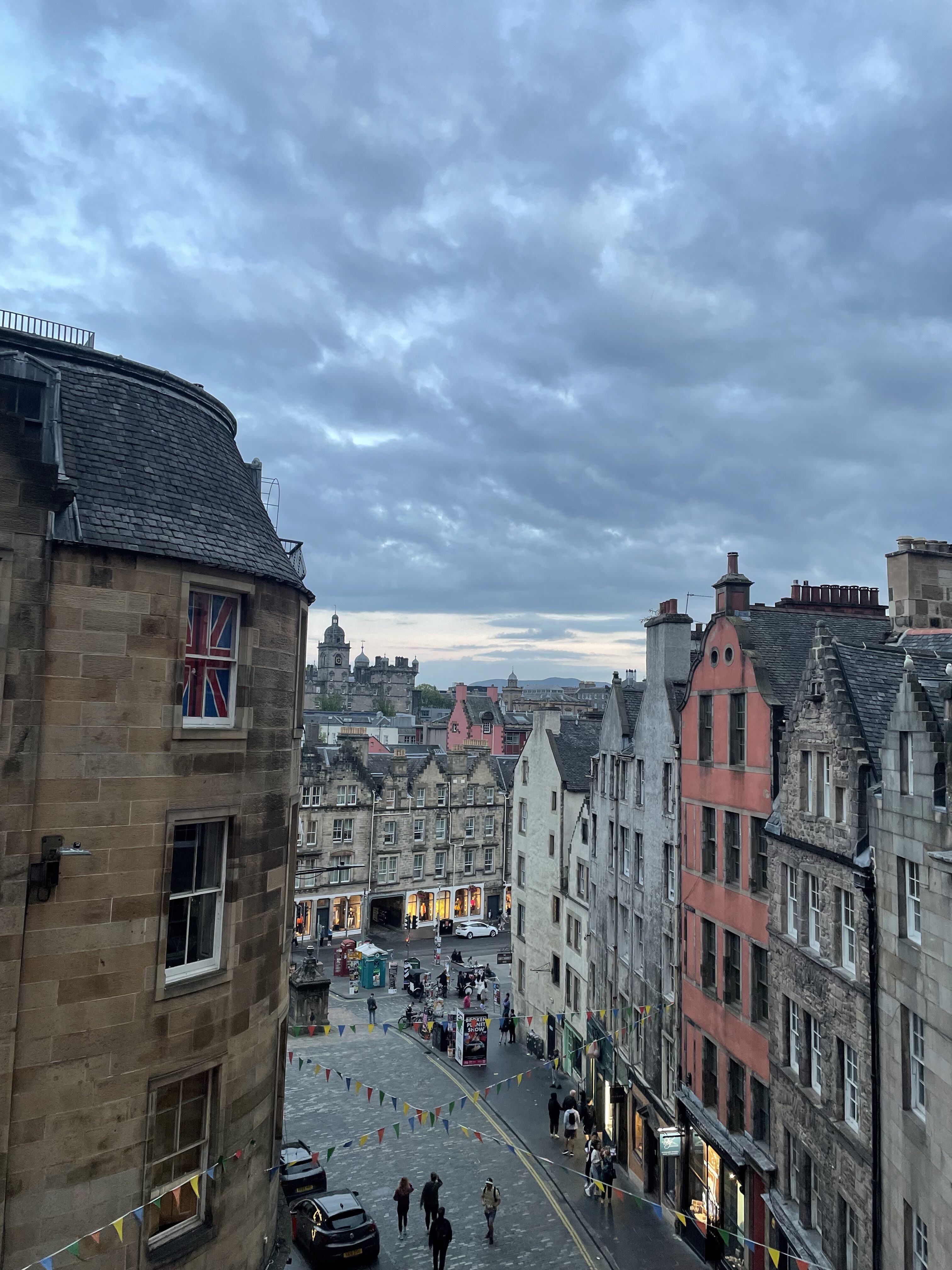
Image credits: Eliza Cane-Honeysett
I asked Megan and Ella for any final comments or advice for anyone hoping to go to Fringe next summer. “Try to take time for yourself as much as possible”, writes Megan. They also recommend trying to socialise with people outside of your show, which can be a good way to detach yourself from the pressures of your show. Ella writes that it’s important to ensure that you go to Fringe with people you enjoy spending time with, even if you don’t initially know them well, and try to nurture close friendships before you get to Edinburgh. “the team you go to Fringe with can be pretty much make or break as to the quality of your experience so this is definitely something to consider!”
Welfare Officers prioritise support, trust, and confidentiality (not just snacks), and they must be aware of the unique challenges Fringe creates for casts and prod teams alike. It’s a stressful, exciting, messy time and it shouldn’t just be the responsibility of the Welfare Officer to ensure everyone’s wellbeing: All members of the cast and prod team also have a duty to each other to be considerate and collaborative.
Don’t let all of this dissuade you from taking a show to Edinburgh Fringe—it’s a one of a kind event and to have the opportunity to participate in it is a real privilege. And God bless the Welfare Officers that ensure we don’t all kill each other by the end of it.
Featured image credits: Eliza Cane-Honeysett





